Thank you! Your submission has been received!
Oops! Something went wrong while submitting the form.
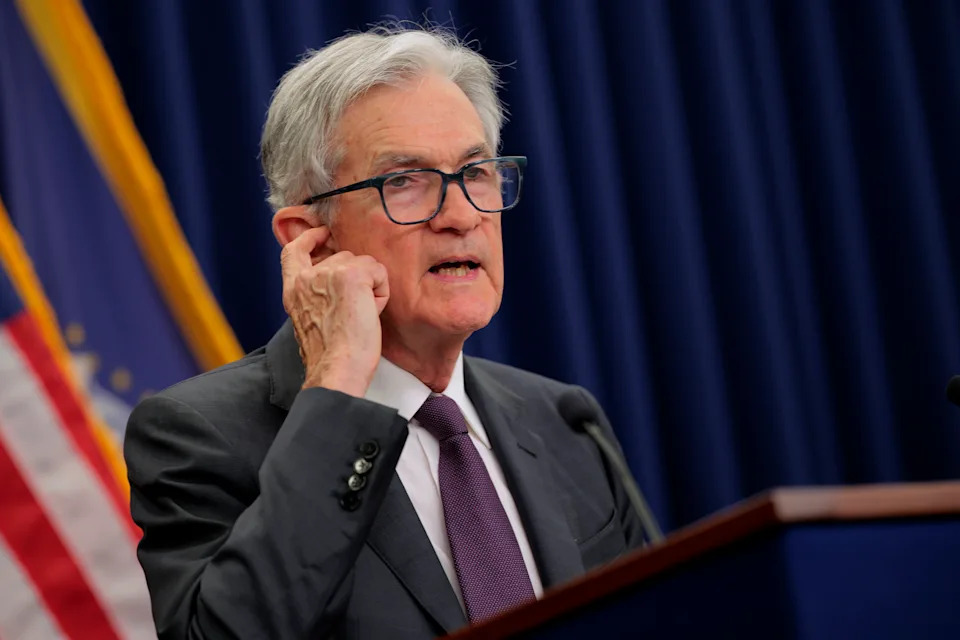
Job market concerns take center stage as earnings season rolls on: What to watch this week
Key Points
- Stocks declined from record highs on Friday following a disappointing US jobs report, with the S&P 500 falling nearly 2.4% for the week, Nasdaq down 2.2%, and Dow Jones shedding 1.2%.
- The July jobs report revealed fewer jobs added than expected, a higher unemployment rate, and significant downward revisions to prior months, increasing the likelihood of a Federal Reserve interest rate cut in September to 83%.
- A busy earnings week awaits with 122 S&P 500 companies reporting, including major players like Palantir (PLTR), Eli Lilly (LLY), and Disney (DIS), amidst heightened market volatility post-earnings.
- Despite economic concerns, AI investment remains a key driver for US stocks, with Big Tech earnings showing continued heavy investment in the sector.
- Earnings season shows S&P 500 pacing for 10.3% growth, though individual stock reactions to reports are more extreme, with investors highly sensitive to any imperfections.
Summary
US stocks fell from record highs on Friday after a weaker-than-expected July jobs report revealed fewer jobs added, a rising unemployment rate, and significant downward revisions to prior months’ data. This sparked a market sell-off, with the S&P 500 dropping nearly 2.4% for the week, Nasdaq declining 2.2%, and Dow Jones falling 1.2%. The disappointing labor market data shifted expectations, raising the probability of a Federal Reserve interest rate cut in September to 83% from 38%. Amidst economic concerns, a busy earnings week looms with 122 S&P 500 companies, including Palantir, Eli Lilly, and Disney, set to report, while market volatility post-earnings remains high. Despite the downturn, AI investment continues to drive optimism for US stocks, particularly in tech-heavy segments, as Big Tech earnings reflect sustained spending. Earnings season shows the S&P 500 on track for 10.3% growth, though individual stock reactions are sharper than usual, with investors reacting strongly to any misses or beats. A quieter week of economic news awaits, but the focus remains on corporate performance and potential Fed actions in response to labor market deterioration.
yahoo
August 4, 2025
Stocks

Lamborghini Temerario test drive: $380K hybrid supercar delivers mind-boggling performance
Key Points
- Lamborghini's Temerario supercar, a 900hp plug-in hybrid with a 10,000 RPM turbo V8, replaces the iconic Huracán, marking a shift to hybrid power for performance and emissions compliance.
- The Temerario features advanced torque vectoring with individual front-wheel motors, enhancing handling and traction, making it excel on the track with speeds nearing 200mph.
- While an improvement over the Huracán in performance and interior quality, the Temerario lacks the emotional appeal of the Huracán's V10 sound and has more subdued styling.
- Priced at $382,654 in the US, the Temerario is sold out for its first year of production, indicating strong market reception despite some critiques.
- Future special editions or performance models of the Temerario are anticipated, potentially offering more aggressive styling and powertrain enhancements.
Summary
Lamborghini's latest supercar, the Temerario, succeeds the beloved Huracán with a groundbreaking 900hp plug-in hybrid system featuring a 10,000 RPM turbo V8 and advanced torque vectoring via individual front-wheel motors. Unveiled at Monterey Car Week, this all-wheel-drive beast prioritizes performance over eco-friendliness, aligning with emissions regulations while delivering exceptional track capabilities, reaching speeds near 200mph. Though it surpasses the Huracán in handling and interior refinement, the Temerario lacks the emotional resonance of the Huracán’s V10 engine sound and sports more restrained styling, which some find underwhelming for its $382,654 price tag. Despite these critiques, the car is sold out for its first production year, reflecting strong demand. CEO Stephan Winkelmann emphasizes its balance of excitement and livability, while future special editions may introduce bolder designs and enhanced powertrains. The Temerario represents Lamborghini’s adaptation to modern automotive demands, blending hybrid technology with supercar thrills, though it leaves room for nostalgia among fans of the Huracán’s raw character.
yahoo
August 3, 2025
Stocks
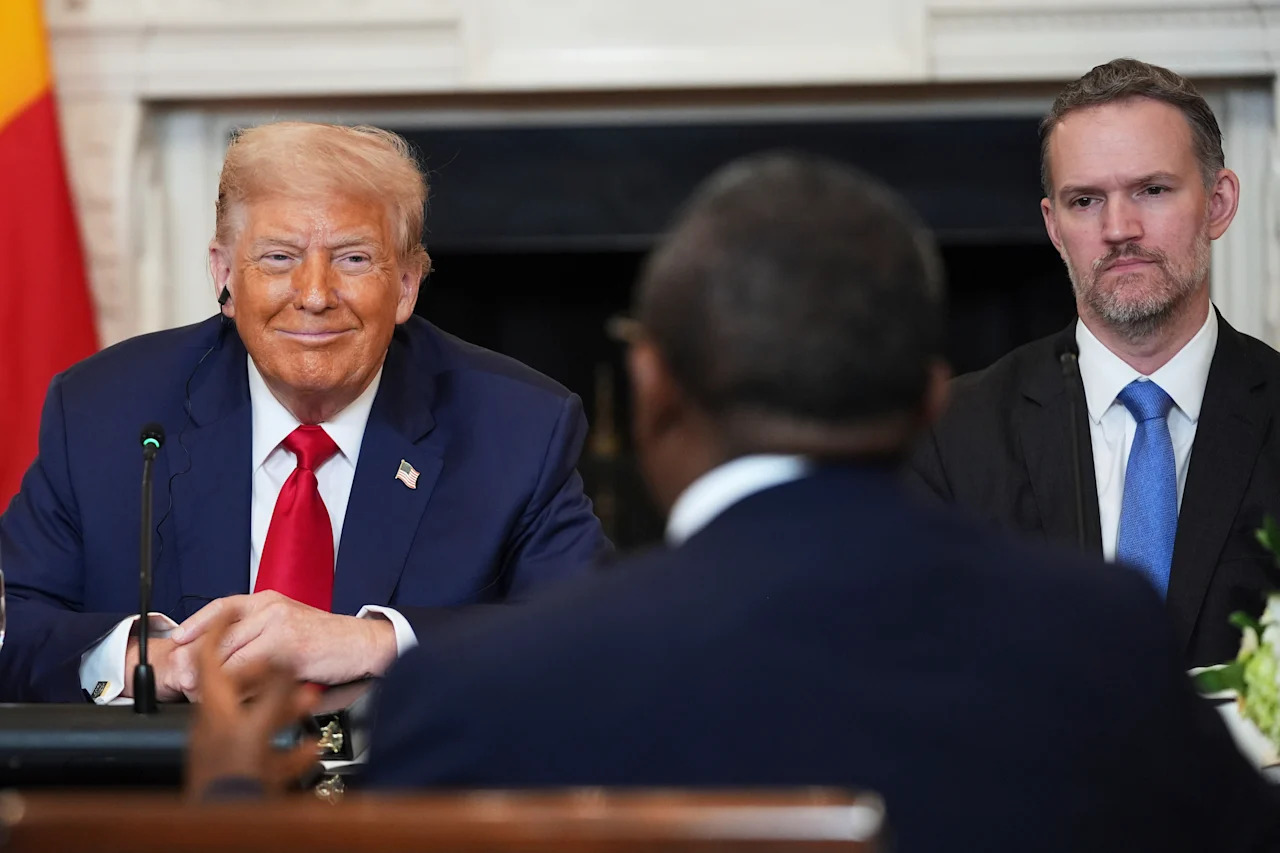
Trump tariffs live updates: Greer says tariffs 'pretty much set,' Buffett's Berkshire portfolio takes tariffs hit, Trump outlines sweeping new deals
Key Points
- U.S. Trade Representative Jamieson Greer stated that the latest round of tariffs imposed by President Trump is "pretty much set" and unlikely to change, as many rates are tied to existing deals and trade balances.
- Trump signed orders imposing significant tariffs, including 35% on Canada, 50% on Brazil, and a standard 15% rate for many countries like the EU and South Korea, with some rates effective immediately and others starting in August.
- Warren Buffett's Berkshire Hathaway reported a 5.1% revenue decline in its consumer goods sector due to Trump's tariffs, citing delays in orders and shipments, despite Buffett's advocacy for free trade.
- Trump's new tariff strategy groups countries into tiers based on trade dynamics, with over 40 countries at a 15% rate, more than 100 at 10%, and about 30 facing higher rates up to 50%.
- Specific trade moves include a 90-day reprieve for Mexico, a deal with South Korea, and the end of the de minimis exemption for low-value imports under $800, impacting various industries and markets.
Summary
President Donald Trump has implemented a sweeping array of tariffs on numerous countries, with U.S. Trade Representative Jamieson Greer confirming these rates are largely fixed due to existing deals and trade balances. Key tariffs include a 35% rate on Canada, 50% on Brazil, and a standardized 15% for many partners like the EU and South Korea, effective from various dates in August. Trump's strategy now categorizes countries into tiers, simplifying future negotiations, with over 40 nations at 15%, over 100 at 10%, and about 30 facing higher rates. Additionally, specific actions include a 90-day tariff reprieve for Mexico and ending exemptions for low-value imports. The tariffs have already impacted businesses, as seen with Warren Buffett's Berkshire Hathaway, which reported a 5.1% revenue drop in its consumer goods sector due to shipment delays, despite Buffett's support for free trade. Meanwhile, trade deals with South Korea and ongoing negotiations with China signal potential progress, though industries like footwear face pressure from the new policies. These moves reflect Trump's aggressive trade stance, influencing global markets and economic dynamics.
yahoo
August 3, 2025
Stocks
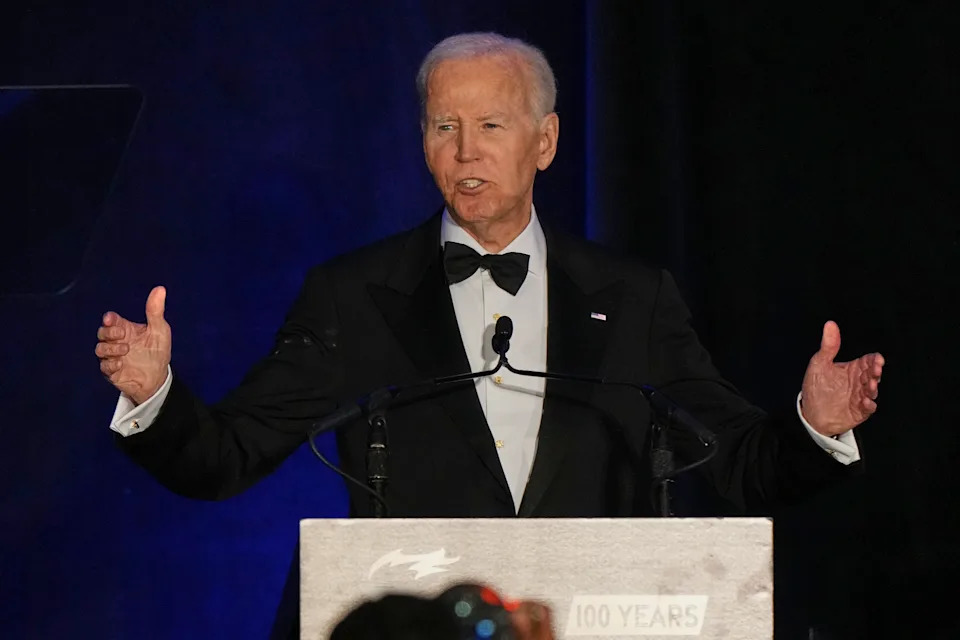
It's Trump's economy now. The latest financial numbers offer some warning signs
Key Points
- Economic Indicators Worsen: Job growth is declining, inflation is rising, and economic growth has slowed compared to last year, contradicting President Trump's promise of an economic "golden age."**
- Policy Impacts Unfolding: Trump's tariffs, tax reforms, and spending cuts are reshaping trade and economic systems, with potential inflationary effects of tariffs expected to hit in 2026, coinciding with midterm elections.**
- Public Perception and Political Risk: Only 38% of adults approve of Trump's economic handling per a recent AP-NORC poll, down from 50% at the end of his first term, posing significant political risks if prosperity isn't delivered.**
- Recent Data Highlights Concerns: The latest jobs report shows a loss of 37,000 manufacturing jobs since April, net hiring has dropped sharply, and GDP growth is down to 1.3% annually from 2.8% last year.**
- Federal Reserve Tensions: Trump's push for lower interest rates, despite inflation risks, and his criticism of Fed Chair Jerome Powell could exacerbate economic challenges.**
Summary
President Donald Trump's economic policies, including tariff hikes, tax reforms, and spending cuts, are reshaping the U.S. economy more than six months into his term, but recent data paints a troubling picture. Job growth has plummeted, with only 73,000 jobs added in July, while manufacturing has lost 37,000 jobs since April. Inflation has risen to 2.6% annually, and GDP growth has slowed to 1.3% from 2.8% last year. Despite Trump's claims of a booming economy, public approval of his economic handling stands at just 38%, down from 50% at the end of his first term. His aggressive tariffs, set to fully impact prices by 2026, pose political risks for Republicans in upcoming elections. Trump has deflected blame, firing the head of the jobs report agency and criticizing Federal Reserve Chair Jerome Powell for not cutting rates, a move some warn could fuel inflation. While the White House remains optimistic, touting deregulation and trade deals as future growth drivers, critics and economic reports suggest a sluggish economy with potential for further disruption. Former President Joe Biden had warned of the consumer burden of universal tariffs, a concern now echoing as prices for imported goods rise. Whether these challenges are temporary growing pains or signs of deeper issues remains uncertain, but Trump's economic gamble carries high stakes for both policy and politics.
yahoo
August 3, 2025
Stocks
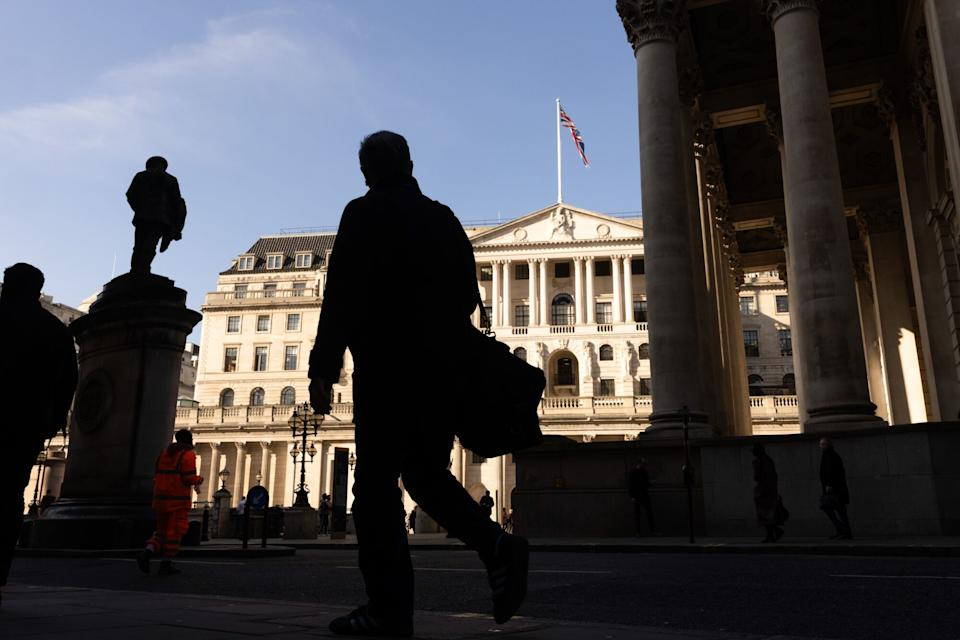
What to know if you're at risk of having your wages garnished over student loan debt
Key Points
- Millions at Risk: TransUnion estimates that by August, around 3 million student borrowers could default on their loans, being 270 days past due, with an additional 2 million at risk by September.**
- Wage Garnishment Threat: Defaulting borrowers face the possibility of having 15% of their wages garnished by the government to repay outstanding debt, potentially starting this summer.**
- Post-Pandemic Challenges: The end of the pandemic-era pause on student loan payments in May, coupled with the expiration of a Biden-administration grace period, has led to credit score declines for many borrowers.**
- Actionable Steps: Borrowers are urged to check their loan status on studentaid.gov, pursue rehabilitation agreements or loan consolidation, and contact loan servicers or congressional representatives for assistance.**
- Hearing Rights: Borrowers can request a hearing within 30 days of a garnishment notice to object based on financial hardship or other qualifying circumstances, potentially delaying or reducing garnishment.**
Summary
Millions of student loan borrowers in the U.S. face the looming threat of wage garnishment as early as this summer, with TransUnion estimating that 3 million could default by August and another 2 million by September. Default, defined as being 270 days past due, puts borrowers at risk of having 15% of their wages withheld by the government to cover outstanding debt. The end of the pandemic-era payment pause in May and a Biden-administration grace period last fall has left many struggling to manage payments, resulting in credit score declines. Experts urge borrowers to check their loan status on studentaid.gov, pursue rehabilitation or consolidation options, and contact servicers or congressional offices for help despite long wait times and dropped calls. Borrowers like Richelle Brooks, with $239,000 in debt, express fear and financial strain, exploring deferment through further education. The Department of Education offers a 30-day window to request a hearing to contest garnishment on grounds of hardship or other qualifying issues, providing a critical opportunity to mitigate the impact.
yahoo
August 3, 2025
Stocks
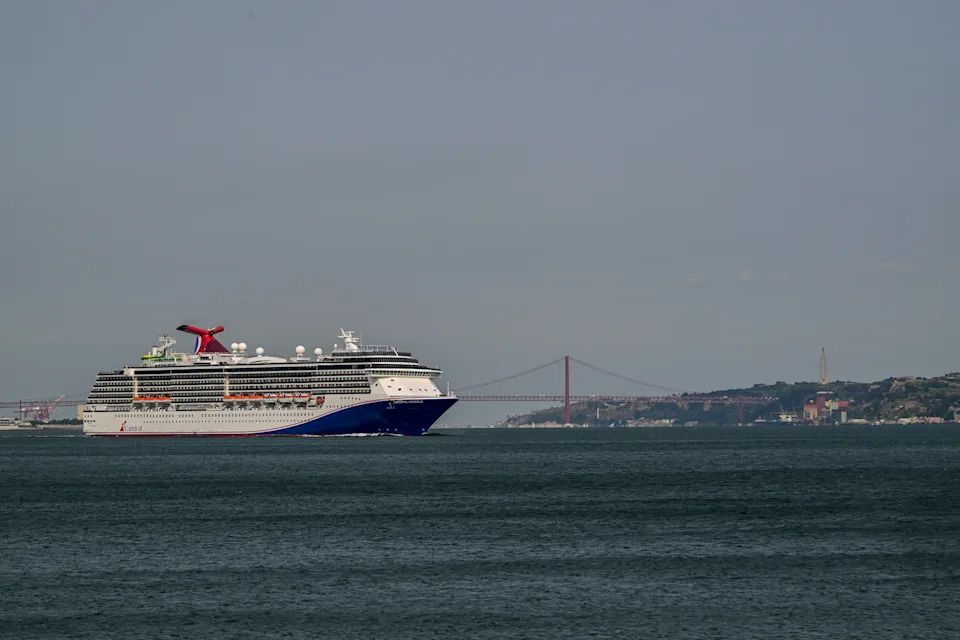
Cruise line stocks are on the rebound this year. Here's why.
Key Points
- Cruise line stocks have seen significant rebounds, with Carnival (CCL) and Royal Caribbean (RCL) up over 70% and Norwegian Cruise Line (NCLH) up 55% since April lows.
- Recent record revenues reported by Carnival ($6.3 billion), Norwegian Cruise Line, and Royal Caribbean reflect strong demand and improved bookings.
- Industry growth is driven by investments in advanced ships, thematic voyages, and exclusive destinations, attracting a broader customer base including millennials.
- Cruise vacations are gaining popularity as a cost-effective travel option, with passenger numbers projected to rise from 29.7 million in 2019 to 37.7 million by 2025.
- Analysts predict the cruise industry's share of the global vacation market will grow from 2% to 3.8% by 2028, indicating strong future potential.
Summary
Cruise line stocks have experienced a remarkable surge in recent months, with Carnival (CCL) and Royal Caribbean (RCL) rebounding over 70% and Norwegian Cruise Line (NCLH) rising 55% since April's market turmoil, despite a recent sell-off. This recovery aligns with record revenues, including Carnival’s $6.3 billion in Q2, and strong bookings driven by an improved macroeconomic environment and clearer trade policies under President Trump. Norwegian and Royal Caribbean also reported robust earnings, fueled by close-in demand allowing higher pricing. The industry’s growth is supported by investments in modern ships, thematic voyages, and unique destinations, making cruises a cost-effective vacation choice. Passenger numbers are expected to increase from 29.7 million in 2019 to 37.7 million by 2025, with millennials and younger travelers now comprising half of Royal Caribbean’s customer base. Analysts highlight cruises as a value proposition, with the industry’s share of the $1.9 trillion global vacation market projected to grow from 2% to 3.8% by 2028, signaling a promising future.
yahoo
August 3, 2025
Stocks
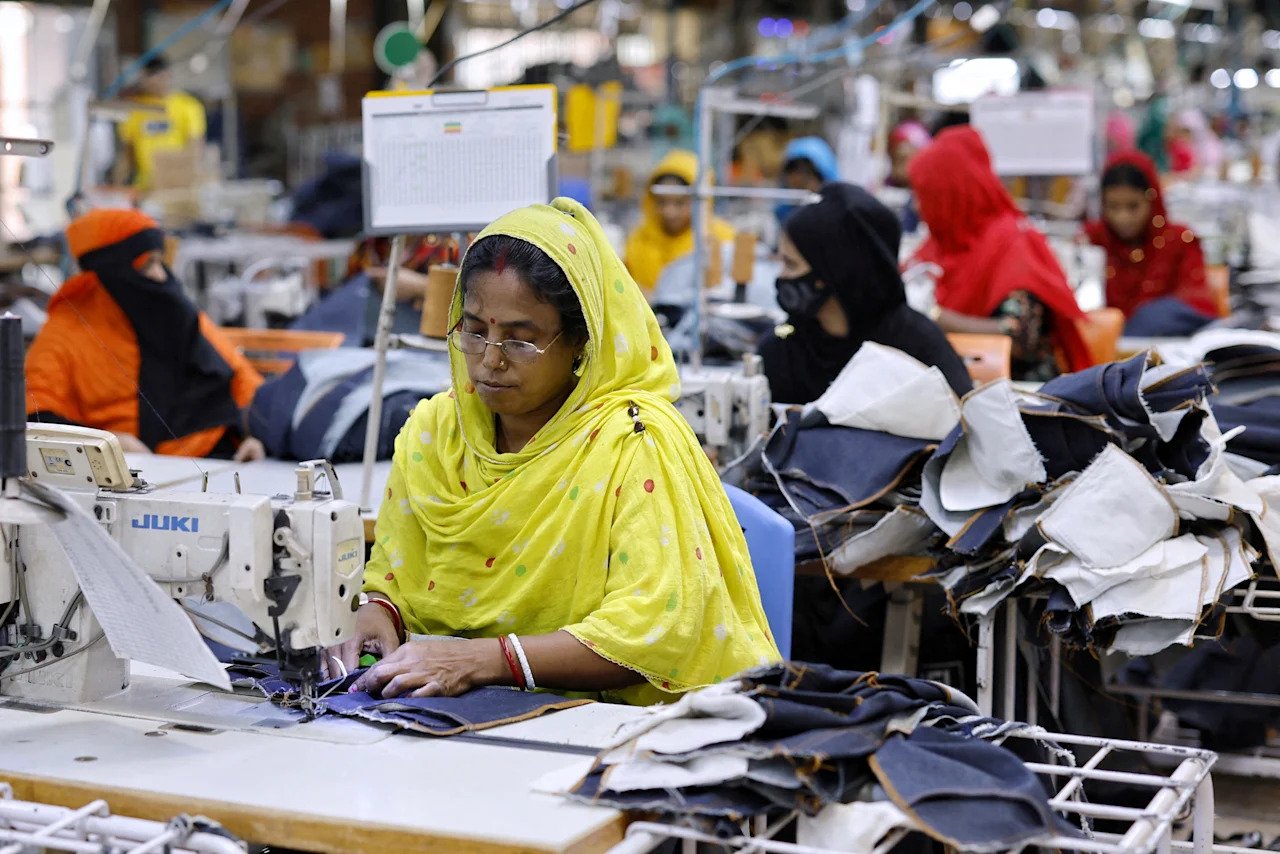
Trump tariffs live updates: Buffett's Berkshire portfolio takes tariffs hit; Trump outlines sweeping new tariffs for dozens of trade partners
Key Points
- Warren Buffett's Berkshire Hathaway reported a 5.1% revenue decline in its consumer goods group for Q2, attributing the drop to US tariffs causing delays in orders and shipments.
- President Trump has implemented sweeping tariffs, including a 35% rate on Canada, 50% on Brazilian goods (with exemptions), and 50% on semi-finished copper products, impacting global markets.
- Trump also signed orders ending the de minimis exemption for low-value imports and introduced a potential 40% penalty for tariff dodging via transshipment, though key details remain unclear.
- Trade deals with Mexico (90-day reprieve), South Korea (15% tariff on imports), and the EU (15% tariff on goods) were announced, alongside ongoing negotiations with China.
- Global stocks and specific industries, like footwear (Nike, Deckers), are under pressure due to the new tariff policies and broader economic concerns.
Summary
Warren Buffett's Berkshire Hathaway reported a 5.1% revenue decline in its consumer goods sector for Q2, blaming US tariffs under President Trump's trade policies for order and shipment delays, as per Reuters. Despite Buffett's advocacy for free trade, Trump's aggressive tariff strategy includes a 35% rate on Canada, 50% on Brazilian goods (with exemptions), and a 50% levy on copper products, causing copper futures to drop. Additional measures involve ending the de minimis exemption for low-value imports and a potential 40% penalty for tariff dodging via transshipment, though implementation details are pending. Trade agreements with Mexico, South Korea, and the EU offer some relief, while negotiations with China show promise. Global stocks declined amid these tariffs and weak US labor data, with footwear companies like Nike facing significant cost increases. Trump's policies continue to reshape the trade landscape, impacting economies worldwide.
yahoo
August 2, 2025
Stocks
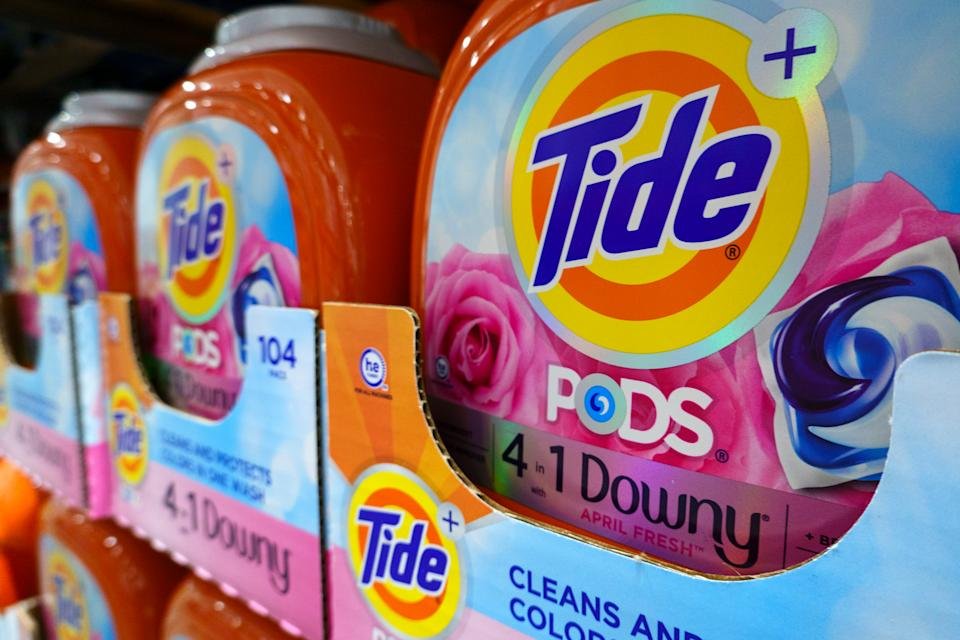
63 million adults are moonlighting as caregivers, with little support
Key Points
- Caregiving Crisis: A record 63 million Americans, nearly 1 in 4 adults, provide care to adults or children with health needs, up from 53 million in 2020, as per AARP and National Alliance for Caregiving reports.**
- Financial Strain: Nearly half of caregivers face financial difficulties, with many taking on debt, depleting savings, stopping savings, or delaying bill payments.**
- Workplace Challenges: Over 60% of caregivers balance employment with caregiving, often reducing hours, taking unpaid leave, or quitting jobs due to inflexible work environments.**
- Personal Impact: Caregivers like Anita Robinson, who retired early to care for her mother, face career setbacks and financial insecurity, with plans for "unretirement" to sustain future needs.**
- Gender Disparity: Women, comprising 61% of caregivers, face greater retirement security risks due to reduced savings and longer lifespans, exacerbating financial recovery challenges.**
Summary
Anita Robinson, a former senior partner at a tech firm, took early retirement at 57 to care for her 83-year-old mother, who suffers from blindness, dementia, and multiple cancers. Her story reflects a growing caregiving crisis in America, where 63 million adults—nearly 1 in 4—now provide care, a sharp rise from previous years, according to AARP and the National Alliance for Caregiving. This role often brings severe financial strain, with nearly half of caregivers accruing debt, depleting savings, or delaying bills. Over 60% juggle employment, frequently reducing hours or quitting, as Robinson did when her company offered no remote work flexibility post-FMLA leave. Women, who make up 61% of caregivers, face heightened retirement insecurity due to reduced savings. The workplace poses further challenges, with caregiving hindering career advancement and many hesitant to disclose their status due to stigma. Robinson, living off savings and a small pension, plans to return to work to avoid depleting her nest egg, staying active through pro bono projects. Experts highlight the emotional, financial, and structural toll of caregiving, urging better support systems like respite care and paid leave to address this pervasive issue impacting families and the workforce.
yahoo
August 2, 2025
Stocks
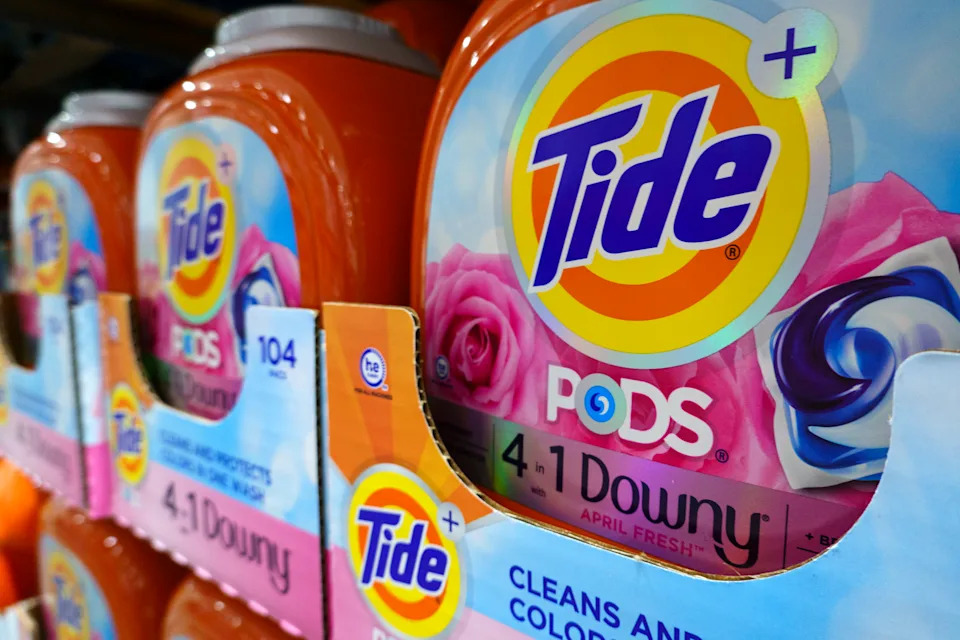
From refrigerators to snacks to detergent, US households are looking for low-cost alternatives everywhere
Key Points
- Consumer Behavior Shift: Americans are increasingly seeking lower prices, impacting purchases from appliances to household essentials, as noted by companies like Whirlpool, Procter & Gamble, PepsiCo, and Coca-Cola.**
- Whirlpool Challenges: Whirlpool reported a 5% year-over-year decline in major domestic appliance sales in North America, missed earnings expectations, cut guidance, and saw its stock drop over 13%.**
- P&G Adjustments: Procter & Gamble observed a cautious consumer trend with trade-downs to less premium products within their portfolio, alongside plans to cut 7,000 jobs by 2027 to reinvest in innovation.**
- Economic Pressures: Macroeconomic uncertainty, high interest rates, inflation fears, and potential tariffs are dampening consumer confidence, as per data from the Conference Board.**
- Beverage Industry Response: Coca-Cola and PepsiCo are focusing on affordable options and value investments to retain consumers amidst economic pressures.**
Summary
American consumers are prioritizing lower prices across various sectors, from appliances to everyday essentials, as highlighted by recent comments from major companies like Whirlpool, Procter & Gamble (P&G), PepsiCo, and Coca-Cola. Whirlpool, facing a 5% drop in North American appliance sales and missing earnings targets, saw its stock plummet over 13%, with CEO Marc Bitzer citing macroeconomic uncertainty and suppressed demand. P&G's CEO Jon Moeller noted a cautious consumer base trading down to less premium products, while announcing a restructuring plan involving 7,000 job cuts by 2027 to fund innovation. Consumer confidence remains low, pressured by inflation fears, high interest rates, and potential tariffs, according to the Conference Board. In the food and beverage sector, Coca-Cola and PepsiCo are adapting by offering more affordable options and focusing on value to retain customers. This widespread shift in consumer behavior reflects broader economic concerns impacting purchasing decisions across industries.
yahoo
August 2, 2025
Stocks

Carvana’s 10,000% Rally From Low Deals $7 Billion Blow to Shorts
Key Points
- Carvana Co.'s shares reached an all-time high, rising over 10,000% from a late 2022 low, delivering significant losses to short sellers totaling $7.42 billion since the end of 2022.
- The stock's surge follows strong Q2 results, with record-setting revenue fueling optimism for a turnaround at the online used-car dealer.
- Carvana's online business model and favorable market conditions, including tariff-driven demand for used cars, have contributed to its high valuation compared to traditional auto dealers.
- Despite a 5.7% drop on Friday, the stock ended the week over 10% higher, with analysts predicting further growth potential.
- Traditional competitors like CarMax, AutoNation, and Lithia Motors have not seen similar gains, with CarMax down 7% since 2022.
Summary
Carvana Co. has experienced a remarkable recovery, with its stock soaring over 10,000% from a late 2022 low to an all-time high, inflicting $7.42 billion in losses on short sellers. The online used-car dealer's recent surge follows blockbuster second-quarter results, including record revenue, signaling a potential turnaround. Carvana's innovative online platform, which allows customers to buy cars remotely, sets it apart from traditional brick-and-mortar competitors like CarMax and AutoNation, contributing to its high valuation. Market conditions, such as increased demand for used cars due to tariffs, have further boosted its performance. Despite a 5.7% drop on Friday, the stock ended the week up over 10%, with analysts optimistic about future growth. This rally, reminiscent of retail-trading frenzies like GameStop, highlights the risks of shorting volatile stocks and marks Carvana as one of the most dramatic recoveries in recent market history.
yahoo
August 2, 2025
Stocks

Trump tariffs live updates: Trump outlines sweeping new tariffs for dozens of trade partners
Key Points
- Trump's Tariff Overhaul: President Trump has signed orders to impose significant tariff hikes, including a 35% rate on Canada effective immediately and a baseline 10% rate across all trade partners, with many new "reciprocal" rates starting August 7.**
- Global Trade Impact: The tariffs affect over 70 countries with rates ranging from 15% to 40%, causing a drop in global stocks and reshaping the US trade landscape.**
- Specific Country Deals: Mexico received a 90-day reprieve on higher tariffs, South Korea agreed to a 15% import tariff with no US export tariffs, and Brazil faces 50% tariffs on many goods, excluding key imports like orange juice and aircraft parts.**
- Ongoing Negotiations: Trade talks continue with China, facing an August 12 deadline, while India faces 25% tariffs plus penalties, and the US-EU deal imposes 15% tariffs with unresolved issues.**
- Sector-Specific Tariffs: High tariffs target Swiss exports at 39%, impacting industries like watches, while copper products face 50% tariffs from August 1, and low-value import exemptions under $800 are ended.**
Summary
President Trump has initiated a major overhaul of US trade policy by imposing sweeping tariffs on over 70 countries, ranging from 10% to 40%, as part of his plan to reshape global trade. Key actions include a 35% tariff on Canada, effective immediately, and specific rates like 15% on South Korea and the EU, alongside a 50% tariff on Brazilian goods with exemptions for certain imports. Mexico received a temporary reprieve, while negotiations with China and India continue amid looming deadlines and penalties. The tariffs, which also target sectors like Swiss watches (39%) and copper products (50%), have led to a decline in global stocks and raised concerns about economic fallout, with Swiss industries warning of job losses. Additional measures include ending exemptions for low-value imports and addressing transshipment issues, though details on enforcement remain unclear. This aggressive trade strategy, accompanied by ongoing talks and last-minute delays in implementation for some rates, signals a significant shift in the US trade landscape with potential impacts on economies worldwide.
yahoo
August 1, 2025
Stocks

July jobs report expected to show hiring slowed while unemployment rate ticked higher
Key Points
- July Jobs Report Expectations: Economists anticipate nonfarm payrolls to increase by 105,000 in July, a decrease from June's 147,000, with the unemployment rate expected to rise to 4.2% from 4.1%.**
- Labor Market Slowing: Recent data indicates a cooling labor market, with private payrolls growing by 104,000 in July per ADP, though overall hiring momentum has slowed.**
- Federal Reserve's Stance: The Fed held interest rates steady in July, with Chair Jerome Powell describing the labor market as "solid" despite signs of slowing job creation.**
- Consumer Spending as Key Indicator: ADP's chief economist suggests that consumer spending will be a critical measure of labor market health amidst recalibration to lower hiring levels.**
- Job Openings and Hiring Rates: June data from the Bureau of Labor Statistics showed a decline in job openings to 7.44 million and a hiring rate drop to 3.3%, the lowest since November 2024.**
Summary
The upcoming July jobs report, set for release on Friday at 8:30 a.m. ET, is expected to reflect a slowdown in hiring with nonfarm payrolls projected to rise by 105,000, down from June’s 147,000, and an unemployment rate increase to 4.2% from 4.1%. This data comes amid growing investor scrutiny of the US labor market for signs of cooling that might influence the Federal Reserve's interest rate decisions. Recent figures, including ADP’s report of 104,000 private payroll gains in July and a decline in job openings to 7.44 million in June, underscore a moderating labor market. Despite this, Fed Chair Jerome Powell described the market as "solid" after maintaining steady rates in July, noting a balance due to reduced labor supply from lower immigration. Analysts like BofA’s Shruti Mishra view the market as moderating rather than deteriorating, while ADP’s Nela Richardson highlights consumer spending as a key health indicator. Additional data shows hiring rates at their lowest since November 2024, yet layoffs remain low, allowing the Fed to adopt a wait-and-see approach on policy amidst inflation and tariff concerns.
yahoo
August 1, 2025
Stocks
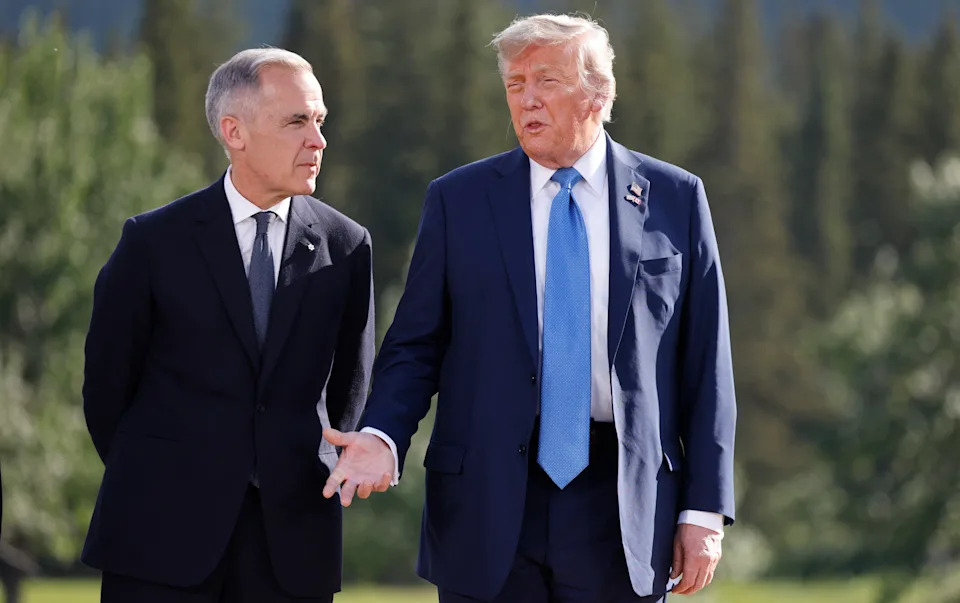
Trump talks with Canada, India and Brazil in a stalemate as his tariff deadline looms
Key Points
- Tariff Deadline: President Trump's tariff agenda faces a critical deadline on August 1, setting a new baseline rate of 15% on most global imports, with higher rates looming for key nations like Canada (35%), India (25%), Brazil (50%), and Mexico (30%).**
- Failed Negotiations: Talks with Canada, India, and Brazil have stalled for diverse reasons, straining relations with major US trading partners and leaving importers facing potential tariff hikes.**
- US-China Relations: A potential 90-day pause on tariff hikes with China is under discussion, with Treasury Secretary Scott Bessent indicating progress toward a deal.**
- Legal Challenges: A federal appeals court will hear arguments on the legality of Trump's authority to impose these tariffs, adding uncertainty to the administration's plans.**
- Economic Impact: While markets remain largely unaffected for now, ongoing trade tensions with significant partners suggest continued negotiations and potential economic repercussions.**
Summary
President Trump's tariff agenda approaches a pivotal August 1 deadline, establishing a 15% baseline rate on most global imports, with higher tariffs threatened for key nations like Canada (35%), India (25%), Brazil (50%), and Mexico (30%). Negotiations with Canada, India, and Brazil have faltered due to differing issues, risking strained relations with major US trading partners and higher costs for importers. Meanwhile, a potential 90-day pause on tariff hikes with China shows promise, as Treasury Secretary Scott Bessent hints at an imminent deal. Legal challenges also loom, with a federal appeals court set to review Trump's authority to impose these tariffs. Despite limited immediate economic impact—partly due to agreements like the USMCA allowing duty-free trade with Canada and Mexico—Trump's rhetoric, including social media criticisms of Canada and India, underscores ongoing tensions. Brazil faces particularly harsh 50% tariffs linked to political disputes over former President Jair Bolsonaro's trial, drawing criticism for the use of emergency powers. While markets remain focused on Big Tech earnings, unresolved trade issues with significant partners suggest negotiations will persist, shaping future US economic relations.
yahoo
July 31, 2025
Stocks

Apple Q3 earnings to give Wall Street better view of tariff impact, AI top of mind
Key Points
- Apple (AAPL) is set to report Q3 earnings with expected EPS of $1.43 and revenue of $89.22 billion, compared to last year's EPS of $1.40 and revenue of $85.7 billion.
- Wall Street is focused on Apple’s AI strategy, tariff-related margin pressures, and the potential impact of a 25% tariff on iPhones if production doesn’t shift to the US.
- The upcoming September iPhone launch event is anticipated to feature a redesigned, slimmer iPhone, potentially boosting Q4 sales and margins with a higher starting price.
- Apple faces risks to its $20 billion annual Services revenue from Google’s antitrust lawsuit, which could end their default search agreement in Safari and Siri.
- Criticism mounts over Apple’s slow AI rollout, with analysts warning that lagging innovation could damage its reputation in a rapidly evolving tech landscape.
Summary
Apple (AAPL) is gearing up for its Q3 earnings report, with Wall Street anticipating an EPS of $1.43 and revenue of $89.22 billion, up from last year’s figures. Investors are keenly watching for updates on Apple’s AI initiatives and the impact of potential tariffs, including a threatened 25% levy on iPhones if production remains overseas. Margin pressures from these costs are a concern, though a redesigned, slimmer iPhone expected at the September launch could drive Q4 sales and higher margins. However, Apple faces challenges with its $20 billion Services revenue tied to Google’s search deal, which is at risk due to an ongoing antitrust lawsuit. Additionally, the company is under scrutiny for its slow AI progress, with analysts warning that competitors’ advancements could tarnish Apple’s innovative reputation if it doesn’t adapt swiftly. The earnings report and upcoming product unveilings will be critical in shaping investor confidence amidst these multifaceted pressures.
yahoo
July 31, 2025
Stocks

Trump tariffs live updates: Trump announces trade deal with South Korea featuring 15% tariff rate
Key Points
- Trade Deal with South Korea: President Trump announced a trade agreement with South Korea featuring a 15% tariff on their imports to the US, while US exports face no tariffs, alongside a $350 billion investment from South Korea in the US.**
- Tariff Actions: Trump imposed 50% tariffs on goods from Brazil and copper imports, threatened a 25% tariff on Indian goods with additional penalties, and ended the de minimis exemption for low-value imports under $800.**
- Trade Talks and Deadlines: US-China trade talks in Sweden showed progress but no immediate tariff delay, with a decision pending by August 12, while a US-EU trade deal faces criticism and a tight deadline.**
- Impact on Prices: Federal Reserve Chair Jerome Powell noted early signs of tariff-driven inflation, with companies like Procter & Gamble and Mondelez planning price hikes to offset costs.**
- Pakistan Deal: Trump announced a deal with Pakistan to develop oil reserves, amid tensions with India over tariffs and geopolitical ties.**
Summary
President Trump has initiated a flurry of trade actions, announcing a deal with South Korea that imposes a 15% tariff on their imports while exempting US exports, coupled with a $350 billion investment from South Korea in the US. Additionally, Trump imposed 50% tariffs on Brazilian goods and copper imports, threatened 25% tariffs on Indian products with further penalties due to Russia ties, and ended the de minimis exemption for low-value imports under $800. Trade talks with China in Sweden showed progress but no immediate tariff delay, with a decision due by August 12, while a rushed US-EU trade deal faces criticism. Federal Reserve Chair Jerome Powell highlighted early tariff-driven inflation, with companies like Procter & Gamble planning price increases. Trump also revealed a deal with Pakistan to develop oil reserves, escalating tensions with India. These moves, including a refusal to extend tariff deadlines, signal a hardline stance on trade, impacting global economies and consumer prices.
yahoo
July 31, 2025
Stocks
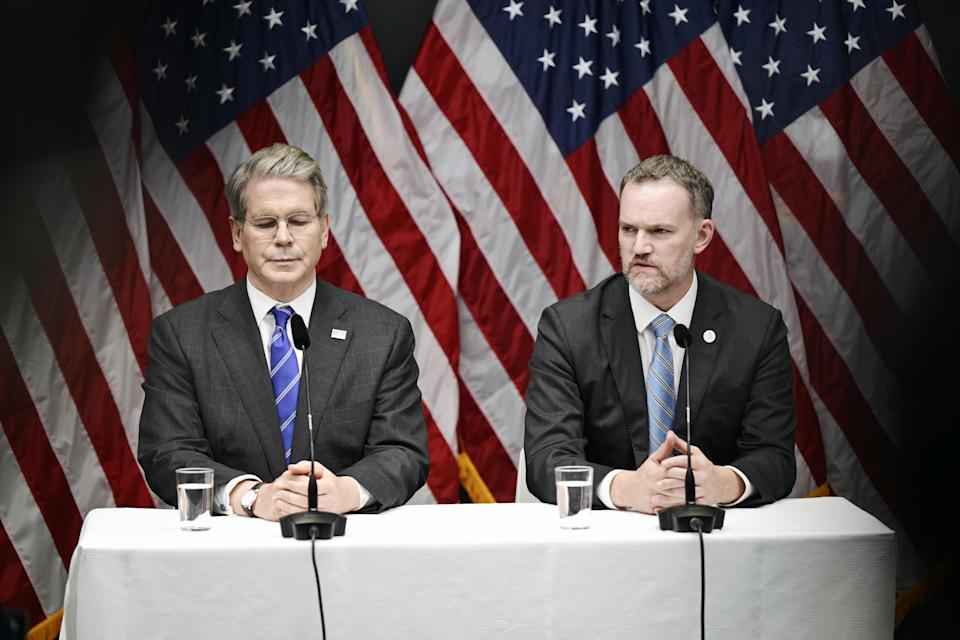
Trump says Powell must lower interest rates 'now' following GDP uptick
Key Points
- President Trump is pressuring Federal Reserve Chairman Jerome Powell to lower interest rates following a stronger-than-expected 3% GDP growth in the second quarter of 2025.
- Despite Trump's claims of no inflation, recent data showing a rise in June is likely to keep the Fed's monetary policy unchanged for now.
- Trump's tariff agenda and fluctuating GDP readings, influenced by import surges, remain concerns for the central bank.
- Investors and analysts are watching for potential signals from Powell or dissenting Fed governors about rate cuts in September or later this year.
- Trump's persistent criticism of Powell is unlikely to subside until interest rates are lowered to his satisfaction.
Summary
President Trump is intensifying pressure on Federal Reserve Chairman Jerome Powell to cut interest rates following a robust 3% GDP growth in the second quarter of 2025, surpassing economists' expectations of 2.6%. Trump hailed the economic rebound as "WAY BETTER THAN EXPECTED" on Truth Social, insisting that Powell must act "now" to lower rates, citing no inflation and the need for people to buy and refinance homes. Despite Trump's claims, recent inflation data from June suggests the Fed will likely maintain current rates in the immediate term. The GDP surge partly reflects the impact of Trump's tariff policies, which previously contributed to a 0.5% contraction in the first quarter due to import surges. While Trump remains optimistic after a recent meeting with Powell, expecting a shift toward lower rates, Powell has shown no immediate inclination to change policy. Investors are closely monitoring for hints of future rate cuts, possibly in September, while inflation and Trump's trade agenda continue to pose challenges for the central bank. Trump's persistent critique of Powell is expected to continue until his demands for lower rates are met, as evidenced by his comments during a Federal Reserve tour.
yahoo
July 30, 2025
Stocks